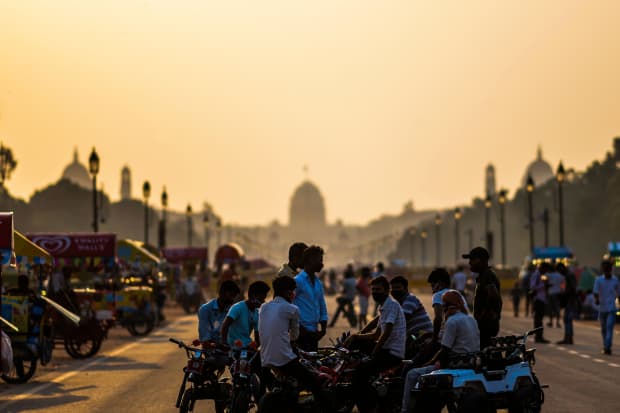This post was originally published on this site

Vendors wearing face masks as a preventive measure against the COVID-19-causing coronavirus wait for customers to rent their toy bikes and cars for rides along the Rajpath street near India Gate, in New Delhi on September 16, 2020.
jewel samad/Agence France-Presse/Getty Images
Surprise, surprise. Rich countries are cornering the market on COVID-19 vaccines.
That is according to a new report by Oxfam, which claims wealthy nations representing a mere 13% of the world’s population have bought up 51% of promising doses from leading COVID-19 vaccine candidates. Those countries include the U.K., the U.S., Australia, Hong Kong and Macau, Japan, Switzerland, Israel and the European Union.
Oxfam analyzed deals already struck between countries and pharmaceutical companies and vaccine producers for five leading global candidates currently in Phase 3 clinical trials. It based its report on data by science information and analytics company Airfinity.
“Access to a lifesaving vaccine shouldn’t depend on where you live or how much money you have,” Robert Silverman, advocacy manager in Oxfam America’s private sector department, said in a press release.
Citing a “‘me-first’ nationalistic approach” in the U.S. as an example, the global charity organization said efforts by wealthy countries to snap up vaccines could mean they don’t reach those at risk in developing and developed countries.
Earlier this month, the administration of President Donald Trump declined to join 172 other nations in a World Health Organization global effort — the COVID-19 Vaccines Global Access Facility (COVAX) — aimed at pooling resources behind at least nine vaccine candidates. Instead of working with the WHO, the U.S. is running its own domestic-focused program known as Operation Warp Speed.
In the U.S., there are seven vaccine candidates that have moved into clinical trials with human participants, and three in Phase 3 development.
Read: What to know about clinical trials as drugmakers push forward with coronavirus vaccine studies
Oxfam also warned of a shortage of vaccines overall. “Even in the extremely unlikely event that all five vaccines succeed, nearly two-thirds (61%) of the world’s population won’t have a vaccine until at least 2022. It’s far more likely that some of these experiments will fail, leaving the number of people without access much higher,” it said.
Oxfam highlighted what it termed a “broken system” that protects monopolies and company profits, and favors those countries with money. Moderna MRNA, -0.61%, which produces one of the leading candidates, was cited as an example. Oxfam said the company has received $2.48 billion in committed taxpayer money and has sold options for all its doses to wealthy countries. The price of that dosage — $12 to $16 per dose in the U.S., to $35 for other countries — is out of reach for many living in poverty, Oxfam said.
A spokesperson from Moderna couldn’t immediately be reached for comment. Note, drugmakers don’t have to offer those drugs on a not-for-profit basis. The Bill and Melinda Gates Foundation, meanwhile, has committed millions of dollars to ensuring low-and-middle-income countries get doses of COVID-19 vaccines, as soon as the first half of 2021
Opinion: Polio immunization in the 1950s offers clues of how coronavirus vaccines might be rolled out
Rival drugmaker AstraZeneca AZN, +1.61% has pledged two-thirds of doses to developing countries, noted Oxfam. But it added that even amping up production would mean the drugmaker could supply doses for only 38% of the world’s population. AstraZeneca suffered a setback after being forced to briefly pause its U.K. trial after an unexplained illness of a volunteer, and trials remain paused in the U.S. and other countries.
“No single corporation will ever be able to meet the world’s need for a COVID-19 vaccine. That’s why we are calling on them to share their knowledge free of patents and to get behind a quantum leap in production to keep everyone safe,” said Chema Vera, interim executive director of Oxfam International.


